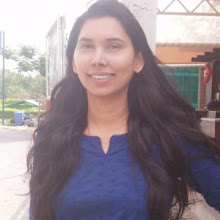New Delhi, May 06, 2015 – Together with IIT Bombay Russian Nuclear Agency Rosatom arranged a Round table in order to discuss high priority questions of Indian nuclear industry development in cooperation with Russia. Russian professor from National Research Nuclear University MEPhI in Moscow along with India nuclear experts took the floor with a speech on Russian know-how on Fast Neutron Reactors as well as innovative Russian nuclear technologies for Indian nuclear energy development.
As Russia-Indian long history witnesses, academic and scientific cooperation has always been a consistent part of intergovernmental relations. Today leading Universities put their efforts to sustain the expanding joint engagement within various interstate educational projects. On April 28, IITB, second-oldest institute of the Indian Technology Institutes, raised with contribution of the USSR government in 1960-s, hosted Rosatom’s guests in its main hall of Victor Menezes Convention Centre. Senior professor at Russian National Research Nuclear University MEPhI, Mr. Dmitry Samokhin was received by professors and up-and-comer students from Department of Energy Science and Engineering.
The professor spoke on History of Fast Neutron Reactors developments in Russia, technology which evolved from BN-350, the world’s first industrial prototype fast breeder reactor with liquid metal coolant to BN-800 with improved design solutions, such as much higher unit capacity, passive safety systems and MOX-fuel usage.
In order to improve safety, efficiency and reliability of an NPP, key features of BN-800 include implementation of technical solutions for assurance of additional emergency passive protection. The reactor’s design life is increased from 30 to 45 years with the prospect its prolongation to 60 years.
Currently Russia develops design solutions for BN-1200 project which will include proven technical features of BN_600 and BN-800. Besides, the innovative reactor design has a significantly simplified system overload, emergency heat removal from the reactor vessel built in the autonomous heat exchangers and others.
Commenting on Indian nuclear energy, the speaker outlined that “India being a developing country where the population is increasing day by day leading to depletion of natural resources faces an increasing need of utilizing safe technology. Therefore for states like Maharashtra where density is rising day by day clean and cost effective system is the need of hour as we cannot yet depend fully on solar power which is dependent upon climate and weather conditions”.
Following Mr. Samokhin’s speech, Chair Professor of Energy Science and Engineering, Kannan Iyer addressed the Round table with a presentation on Nuclear energy development in India as well as the industry’s perspectives in the global energy balance. He considered the Government Nuclear Programme and gave a short outlook to implementation of its three stages. Moreover, Indian academic scene was mentioned as a consistent part of industry’s historical background and key towards international cooperation with Russian leading Research and Development Institutions. According to Kannan Iyer, despite limitations, healthy contributions and diverse activities have been carried out by academic institutions.
Students from the Department of Mechanical Engineering were highly involved in the subject and addressed many questions to Russian professor during the Round table and further informal lunch when they could communicate directly. Moreover research fellow students were highly interested in pursuing Master’s degree in the National Research Nuclear University MEPhI in Moscow and underlined that “it was an excellent opportunity for students to learn more about nuclear developments and deals between India and Russia”.
For reference
National Research Nuclear University “MEPhI” is one of the most recognized technical universities in Russia. MEPhI was founded in 1942 with an original mission to train and provide human resources and scientific and innovation support to the nuclear industry and other high-technology branches of national economy and social sphere of the Russian Federation relevant to the fields of expertise of the University on the basis of system-based modernization of multi-level professional education within the framework of the unified educational space, ensuring integration of science, education and production.
Today, MEPhI has five main departments: Experimental and theoretical physics, Physics and Technology, Cybernetics and Information security, Automatics and electronics, High Technology Management and Economics.
The most famous scientists, Academicians I.V. Kurchatov, A.I. Leypunsky, L.A. Artsimovich, I.K. Kikoin, Ya.B. Zeldovich, I.E. Tamm, N.I. Novikov and others were among the originators of the system of nuclear education in Russian traditions of which are held up by the NRNU MEPhI.
Mr. Dmitry Samokhin is a senior professor at the Reactor Development & Design Department which is responsible for training specialists for further work in Nuclear Safety and Reliability department, Reactor department at an NPP, Research institutes and Design organizations. His basic courses include: Physical theory of nuclear reactors, Dynamics and safety of NPPs, Kinetics of nuclear reactors, Fast reactors.


Comments
Post a Comment